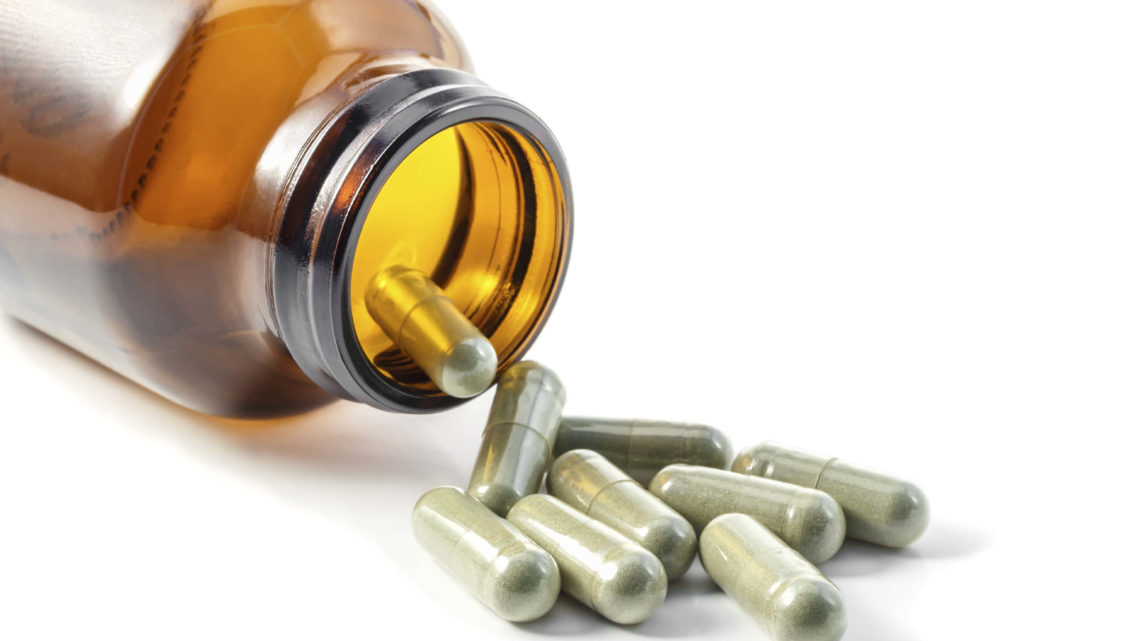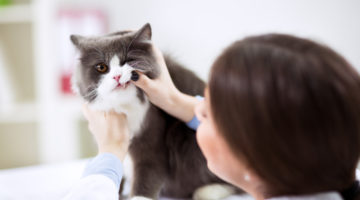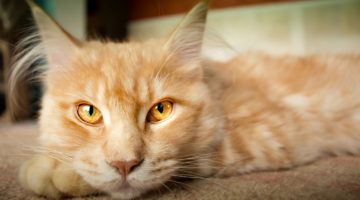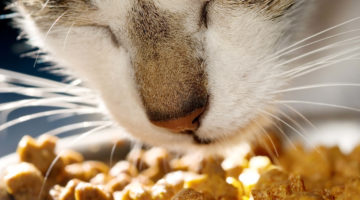Probiotics, fiber and Omega fatty acids are among the top supplemental nutrients that can benefit a cat’s health.
A healthy cat starts with a healthy diet. Adding a certain supplement to her diet can help her stay even healthier. Here are the top supplements I prescribe to my feline patients.
1. Probiotics
Non-pathogenic bacteria are crucial to a variety of GI functions, including digesting food, absorbing nutrients and water, producing feces, and preventing damage from other microorganisms (pathogenic bacteria, viruses, parasites, etc.).
Normal gut bacterial levels are altered by disease, stress, dietary indiscretion, food changes, medications and more. Indigestion then occurs, with vomiting, stool and appetite changes.
Probiotics help maintain normal intestinal function and are generally safe and well-tolerated by the feline body. Probiotic supplements should contain millions of diverse bacterial species; some flourish in and support the small intestines (Lactobacillus sp., etc.) while others aid the large intestine (Bifidobacterium sp., Enterococcus sp., etc.).
Probiotics may be given as a supplement, or in foods such as yogurt, some cheese, and other fermented products. Many supplements labeled as probiotics are actually synbiotics containing both prebiotics and probiotics. I recommend cats take a synbiotic as a supplement and also consume prebiotics naturally through whole food diets.
2. Fiber
Fiber is divided into two categories:
- Soluble fiber — dissolves in water to create a gel-like substance that helps digestion by slowing down the movement of food and fluid through the intestines. Promotes firmer stool.
- Insoluble fiber — does not dissolve in water and passes through the digestive tract in a form similar to how it enters the body. Creates greater stool bulk and can speed up the movement of food through the digestive tract.
Fiber promotes a sense of fullness and reduces the urge to eat more, contributing to weight management. Hairball-prone cats can benefit from supplemental fiber that binds hair to facilitate its passage through the intestines; the hair exits in feces instead of building up in the stomach and being vomited.
Fiber and prebiotics
Fiber serves as a prebiotic, which provides a growth medium for beneficial bacteria. Without prebiotics, probiotics may not thrive in the digestive tract.
Examples of fiber and prebiotics include inulin, fructooligosaccharides (FOS), psyllium husk, fruit, vegetables (pumpkin, etc.) and whole grains (barley, oats, etc.).
Fiber can help constipation by contributing to larger feces. Provided the cat does not suffer from an ailment in which the colon improperly contracts, fiber aids constipation-prone felines by stimulating colonic muscular contraction and promoting feces to exit the body.
Increasing dietary fiber intake can also aid cats with diarrhea. Large bowel diarrhea (colitis) occurs as a result of food changes, dietary indiscretion, toxin exposure, medications, etc., and often responds favorably to fiber supplementation.
3. Omega fatty acids
Your cat’s joints, skin, coat, nerves, heart, blood vessels, kidneys, liver, immune and other body systems can benefit from Omega fatty acid supplementation. My prescription of Omega fatty acids is primarily for inflammation associated with arthritis, allergic skin disease, immune-mediated ailments, and cancer. I also recommend them for fast-growing kittens, and any feline enduring environmental and lifestyle stress.
When selecting any supplement for your feline friend, it’s important to consult with a holistic or integrative veterinarian.
Since cats are obligate carnivores, it’s best to give them animal-based Omega fatty acids. The three types of Omega fatty acids (3, 6 and 9) are primarily contained in fish oil. Omegas 3 and 9 are anti-inflammatory, while Omega 6 is pro-inflammatory. Omega 6 fatty acids are important for nervous tissue development, so I don’t recommend eliminating them, but I do suggest providing supplemental Omegas 3 and 9.
When reading a fish oil label, look for the total milligrams (mg) of EPA (eicosapentaenoic acid) and DHA (docosahexaenoic acid) — both types of Omega 3 readily utilized by the body. EPA is most important in reducing inflammation, while DHA helps build brain and retinal tissues.
I recommend fish oil that appears clear, has minimal odor, lacks flavor enhancement, and is guaranteed free of heavy metals, pesticides and radiation. Fish oil must be refrigerated after opening to prevent the oxidation and rancidity that can affect flavor and be detrimental to health.







No Comment